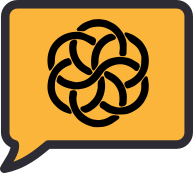Kuki Chatbot: Human-Like AI for Conversations and Business Growth
In today’s digital age, chatbots have become essential tools for both personal and professional use. Among the many AI-powered bots available, Kuki Chatbot—formerly known as Mitsuku—stands out. Created by Steve Worswick, Kuki is a multi-award-winning chatbot recognized for its realistic, engaging conversations. In this review, we’ll explore what makes Kuki unique, how it can benefit businesses, and why it represents a major step forward in conversational AI.
What is Kuki Chatbot?
Kuki Chatbot is a general-purpose AI that simulates human-like dialogue using advanced natural language processing (NLP) and machine learning. Unlike task-specific bots, Kuki can chat about virtually anything—from casual banter to thoughtful discussions—making it a versatile conversational partner.
Where Can You Use It?
You can chat with Kuki across various platforms, including:
- Facebook Messenger
- Twitch
- Telegram
- Its official website
One of its standout features is its ability to remember context, which helps maintain smooth, natural conversations over longer periods.
How Kuki Chatbot Can Benefit Businesses
Though it began as an entertainment chatbot, Kuki’s core technology has significant commercial potential. Let’s look at how businesses can put it to work:
1. Customer Support That Feels Human
Kuki goes beyond basic question-answering. It engages users in conversations that feel natural, not scripted. This can help businesses:
- Reduce support costs
- Improve customer satisfaction
- Handle more complex queries
For example, an e-commerce site could use Kuki to provide product recommendations, assist with tracking, and even troubleshoot customer issues—without losing the personal touch.
2. Lead Generation and Sales Conversations
Kuki can also serve as a sales assistant, engaging visitors, understanding their preferences, and guiding them to the right products or services. By mimicking human conversation, it builds rapport—leading to better conversion rates.
Imagine a real estate site using Kuki to answer questions about properties, gather contact details, and book viewings—all in a single conversation.
3. Interactive Employee Training
Businesses can use Kuki to simulate real-world scenarios for training. Employees can practice communication skills, conflict resolution, and customer handling through AI-led dialogue.
Kuki can also serve as an onboarding assistant, answering FAQs about company policies and benefits, freeing up time for HR professionals.
4. Collecting Feedback and Market Research
Traditional surveys are often ignored. However, a conversational AI like Kuki can ask questions in a friendly, engaging way, encouraging more detailed and honest feedback.
For example, a café chain could use Kuki to gather feedback on new menu items through casual, chat-based check-ins after visits.
Kuki Chatbot and the Future of Conversational AI
Kuki doesn’t just answer questions—it leads the way in AI conversation design. Here’s how it’s shaping the future:
1. Realistic, Context-Aware Conversations
Kuki’s ability to hold dynamic, human-like conversations makes it a benchmark in the chatbot industry. As the technology improves, the line between human and machine interaction will continue to blur.
2. Personalized Interactions at Scale
By learning from past interactions, Kuki tailors responses to each user. This scalable personalization can help businesses deepen customer relationships across thousands of interactions.
3. Integration with Emerging Technologies
Kuki can potentially integrate with AR and VR, creating immersive experiences. For example, a clothing store could pair Kuki with virtual dressing rooms to provide personalized advice in real-time.
4. Ethical and Privacy Considerations
Like all AI systems, Kuki raises ethical concerns. Transparency, data security, and appropriate usage are key. Businesses must ensure that users understand when they’re interacting with a bot and that their data is handled responsibly.
Limitations of Kuki Chatbot
Although powerful, Kuki does have its limitations:
- General-purpose nature: It may not offer deep, domain-specific knowledge without additional training.
- Occasional inaccuracies: As with any AI, responses are sometimes generic or off-topic.
- Potential disconnect: Some users might find bot interactions impersonal or unsettling.
To use Kuki effectively, businesses must balance AI automation with opportunities for genuine human connection.
Final Thoughts: Is It Worth Considering?
Without a doubt, Kuki Chatbot represents the future of AI-powered conversation. Its ability to mimic human dialogue, adapt to users, and integrate across platforms makes it ideal for customer support, lead generation, employee engagement, and more.
However, businesses must also remain mindful of its boundaries. Ethical use, personalization, and thoughtful deployment are essential for long-term success.
If you’re looking for a chatbot that does more than answer questions—one that can engage, entertain, and even learn—Kuki is a compelling choice. Used wisely, it can enhance both user experience and business outcomes in an AI-first future.

